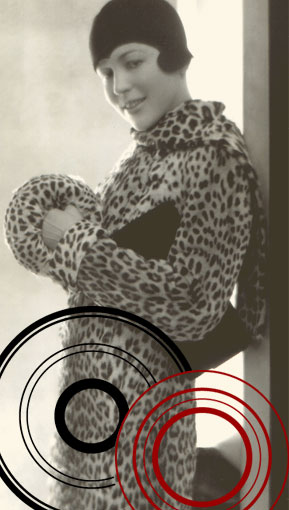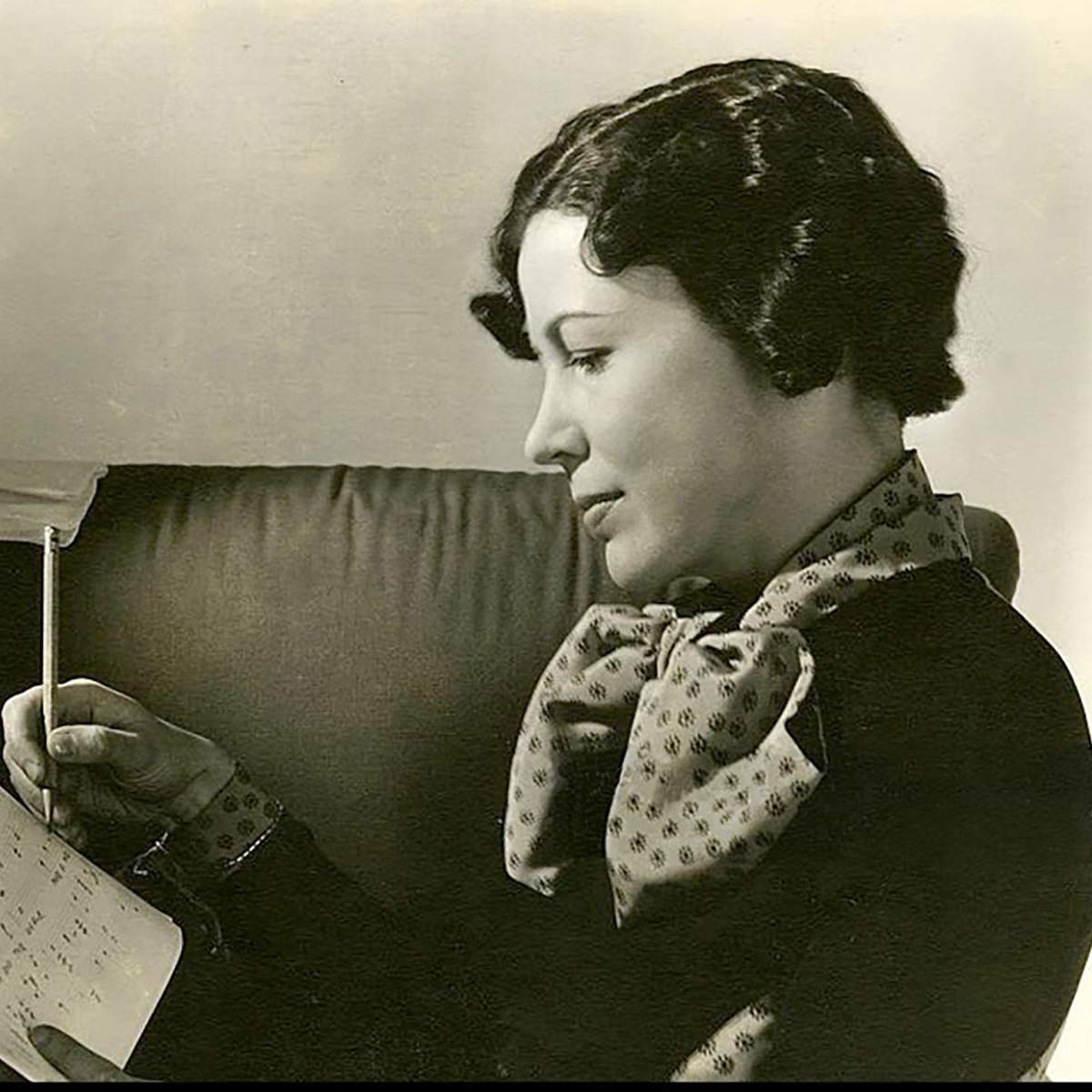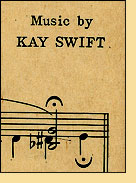

 This year's 124th Kay Swift birthday celebration took place on April 19th, with the Kaufman Music Center Broadway Close Up Lecture-Concert from Merkin Hall. Information about the event here.
This year's 124th Kay Swift birthday celebration took place on April 19th, with the Kaufman Music Center Broadway Close Up Lecture-Concert from Merkin Hall. Information about the event here.
We are disappointed by the recent novel "about" Kay Swift and her romance with George Gershwin. There is almost no page in the book without absurd errors, inauthentic representations, ignorant cultural, political, and musical references, or offensive characterizations. There are numerous representations that we consider to be anti-Semitic, whether knowingly or ignorantly. For a book attempting to portray the romance between two celebrated musicians, the writing is both inept and tone-deaf. Lyrics by James Paul Warburg/Paul James have been quoted without legal permission or necessary copyright identification in front matter.
Readers who want to know about Kay Swift's life and music are encouraged to read The Memory Of All That by Katharine Weber and Fine and Dandy: The Life and Work of Kay Swift by Vicki Ohl. Other knowledgeable books with a true feeling for George Gershwin's relationship with Kay Swift are The George Gershwin Reader edited by Wyatt and Johnson, George Gershwin: His Life and Work by Howard Pollack, and George Gershwin: An Intimate Portrait by Walter Rimler. For those interested in reading more about the Warburg family, the definitive (if not entirely accurate or complete) book is The Warburgs by Ron Chernow.
The Kay Swift Trust will soon have information about the publication of the Kay Swift Concert Series. Stay tuned!
 Best known in musical theater circles for her long-term
romance with George Gershwin, Kay Swift's own musical talent was considerable
and her contributions to American music of the 20th century are significant.
Best known in musical theater circles for her long-term
romance with George Gershwin, Kay Swift's own musical talent was considerable
and her contributions to American music of the 20th century are significant.
Kay Swift was the first woman to write the score to a hit Broadway musical, the 1930 show Fine and Dandy. Her three most enduring songs are "Fine and Dandy" and "Can This Be Love?" (both from that show), and "Can't We Be Friends?", which was first sung by Libby Holman to Clifton Webb in the 1929 Little Show on Broadway. "Can't We Be Friends?" captured the mood of the period so perfectly that it is immortalized by a reference in the 1931 F. Scott Fitzgerald short story, "A New Leaf."
Welcome to Kay Swift's home on the web, a source for information about the life and music of a true American original.